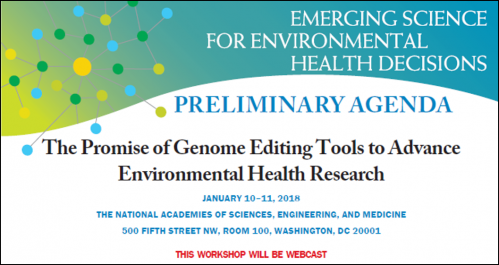
Toxic Tort Lawyers: It’s Time to Join the Genetic Revolution
Due to scientific advances in molecular biology, questions about a person’s DNA are more frequently becoming prominent in civil law, including “toxic tort” cases. To date, evidence about inherited DNA mutations has been instrumental in cases involving medication(s), vaccines, benzene, asbestos, and/or tobacco. This post provides an overview of some articles and events illustrating some of the issues and developments related to the genetic revolution that lie ahead.
Ultimately, the convergence of molecular science, genetics and civil law will unfold over many years, across many areas, including proof of causation, damages, and apportionment of fault in toxic tort cases. The revolution in civil law will be broader and deeper than it was (and still is) in criminal law. In criminal law, questions answered through genetic evidence tend towards binary outcomes: yes or no to whether DNA is related to person X (or present/detectable or absent/undetectable).
In contrast, genetic issues in civil law will likely arise across a non-binary continuum or grey scale. For example, questions may include: were genetic factors “a cause” of some “harm,” or what is “reasonable” for a person with condition XYZ. And, in civil law, there are more questions to be answered about physical conditions. For example: Does a family history indicate reasons to suspect some or all family members harbor mutated genes that are part of an inherited cancer syndromes? What will or may be the impact of the genetic condition? Can the condition be effectively ameliorated or even “cured?”
Therefore, the coming genomic revolution in civil law will likely be more extensive and have a larger impact than the past genomic revolution in criminal law. And, the impact will be felt across many areas of civil law, including administrative law (e.g. workplace exposures), family law (e.g. new definitions of “special needs” children and new scrutiny of developmental conditions), and even constitutional law. Indeed, the constitutional law implications are highlighted by Ohio enacting a law banning abortions after a fetus is shown to harbor Down Syndrome.
Background on the Genomic Revolution in Civil Law
The types of genomic evidence that are and will be used in toxic tort cases provide significant opportunities and risks for clients, lawyers, and other interested parties. A 2016 article by Gary E. Marchant, provides an incisive summary of genomics in civil litigation. The article also reflects his broad base of knowledge, which includes degrees in genetics, law, and public policy, as well as his current work as a law professor at Arizona State University and as a former litigator at a prominent national law firm. Ultimately, as Marchant explains, the use of genetic evidence in civil law should lead to more accurate and reliable outcomes.
The breadth of the changes is leading to more interest in the advances in molecular science, and the expanding intersection between genetics and civil law. A wide range of science and law topics was explored in a May 2017 workshop on genetics and civil law, sponsored by members of ToxicoGenomica and other professional advisory groups. The workshop included presentations on policy issues, important and emerging scientific developments, and novel legal questions framed by both emerging knowledge and new statutes. The presenters and attendees included strategic thinkers from major publicly held companies, prominent scientists, former and current leaders of EPA and NIOSH, Professor Marchant, jury consulting and demonstrative exhibit firm A2L, and trial lawyers involved with “genomics” cases.
Genetics Workshop in January 2018
The changes and new knowledge continue to accelerate with new discoveries. For example, gene editing is moving forward at breakneck speed because of CRISPR and other important, new technologies. That knowledge, in turn, can be used in ways relevant to some civil law claims, including regulations. Thus, an upcoming workshop sponsored by the National Academies of Science (January 10th and 11th) entitled: “The Promise of Genome Editing Tools to Advance Environmental Health Research.” The agenda is online here; you can register to attend via a free, online webcast. Imagine the changes to tort law if genome editing can be used to fix some diseases/conditions!
Join the Genomic Revolution
The big picture is plain. Advances in genomics have revolutionized biomedical research, clinical medicine and criminal law. Surely and steadily, advances in genomic science will create major changes in civil law, especially toxic tort litigation. Already, there are many examples where the information and insight offered through genomic analyses and systems biology approaches have provided radical impact on toxic tort cases. These changes have implications for virtually all stakeholders, including lawyers, plaintiffs, defendants, expert witnesses, and insurers.
Join the revolution now, and help shape the future of toxic tort litigation.
